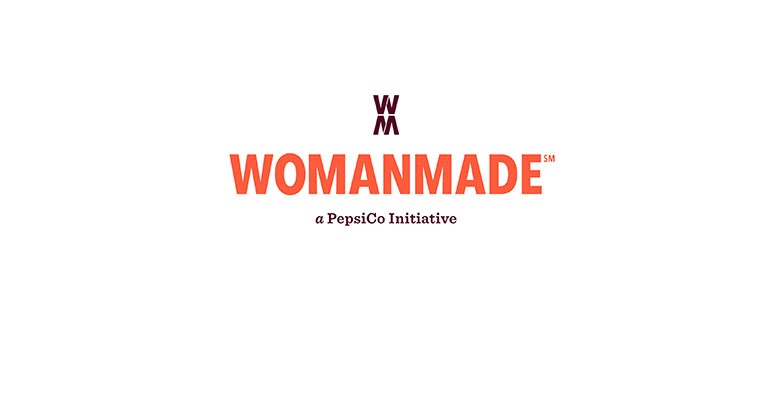The PepsiCo and Frito-Lay initiative proves that when women are economically empowered, everybody thrives.
April 3, 2020

Ciara Dilley, vice president of marketing for Frito-Lay North America, has been a champion for women-led businesses for over two decades. She is also an expert on today's better-for-you snacking trends.
These two combined areas of interest led to her to help launch PepsiCo and Frito-Lay's WomanMade initiative, which advances female founders in the food and beverage industry through funding and mentoring. We spoke to her about this experience on the heels of the recent WomanMade Challenge.
newhope.com: Could you tell us a little bit about WomanMade and when and how this initiative came about?
 Ciara Dilley: WomanMade is a PepsiCo and Frito-Lay initiative that we set up about two years ago. We were doing a lot of great work in the female diversity space, both internally and externally, and we identified an additional opportunity to create a program that would make more of a societal difference. We came to hold the view that economic empowerment is one of the most powerful things that we as an organization can do in order to support female diversity, because we know that when women are economically empowered they are more free to use their voices, they are more free to make their own decisions and, indeed, they reinvest hugely back into our families and communities. So everybody thrives.
Ciara Dilley: WomanMade is a PepsiCo and Frito-Lay initiative that we set up about two years ago. We were doing a lot of great work in the female diversity space, both internally and externally, and we identified an additional opportunity to create a program that would make more of a societal difference. We came to hold the view that economic empowerment is one of the most powerful things that we as an organization can do in order to support female diversity, because we know that when women are economically empowered they are more free to use their voices, they are more free to make their own decisions and, indeed, they reinvest hugely back into our families and communities. So everybody thrives.
At the same time I was in global analysis at Frito-Lay, and as we looked at who was growing in the snacks and beverages sector we met more and more female entrepreneurs who were developing fantastic products. We also started to really understand their business models, their struggles, what they need to overcome in order to be successful and where they were looking for support or guidance.
How has the program changed during its two years in existence?
We started the program very much at ground level, trying to understand the environment and trying to understand the female founder herself. We did a whitepaper on what she needed, where she was struggling, what barriers she was facing and also where she was thriving. What were the key success metrics? Who was doing already doing supportive work in the area?
We looked at every type of organization, from financial institutions to NGOs to those who were very deeply invested in the female founder space. And we learned a lot from that to help build the program.
In addition to the application requirements, what do you look for in a company when awarding these grants?
There are three key three key criteria. The first is the strength of the overall business idea and how well articulated and distinctive it is. The second is the purpose, or the mission, of the company—and we were very keen for companies that had a strong purpose or mission. And then the third is whether there is really a future for the company. So, if we as a team think the company has the potential to grow and thrive.
What kinds of long-term support do these founders receive through the program?
All of the women gain access to our online platform. We have partnered with an amazing company called Alex, which has an A.I.-enabled platform that supports minority entrepreneurs—women, women of color, people of color, veterans, etc. And we have a whole area within this platform designated for the WomanMade community specifically. There are webinars that teach the community best practices, like how to get funding or build a brand. There are also opportunities to access funding through this platform whenever we have those kinds of initiatives going on.
The thing about working with female founders is that they have already developed a ready-made community among themselves. They're supporting each other and they're sharing their stories and their ideas—women just have an incredible aptitude to put their arms around each other and lean in and give advice and share their experiences and stories. That's the part I love most when we run these initiatives, you see that amazing community just grow and grow.
In your experience, has the industry as a whole been changing for the better with regard to supporting female founders?
It's a work in progress, but I think we're making enormous strides in this area. I think it started off for companies preceded by the idea that diversity is good for business and overall growth. Companies with diverse workforces are more likely to have loyal employees, higher retention rates and lower turnover as well. The statistics showing this have helped us to really impress that idea upon larger organizations.
I also think that we're getting a lot more creative about how we take on diversity and how we improve and deliver and ensure that we have more diversity in our entire workforce, all the way up to the senior management level. Whether that comes across as more flexible working styles, different types of parental leave or diverse types of job experiences. You know, we support working women as well as working men. One size doesn't fit all in this area. We will all benefit if we collaborate and support each other.
We're also doing a lot of really progressive work with regard to management training on the leadership side, particularly in the areas of the vulnerability and authenticity necessary for genuine leadership. Those areas tend to be incredibly important for women and they also tend to be areas that we do really well in, but they can be uncomfortable traits to display in the workforce, particularly in in corporate environments.
What have you learned from the women involved in the initiative?
We did so much homework beforehand because we're not a female-founded company or a small entrepreneurial company, so we want to make sure that we sought to understand their needs versus just telling them what they want. We found it to be incredibly important to note that these female founders don't want to be treated like a charity, they don't want our sympathy. They want our respect, financial support and our experts' advice and guidance.
They want us to help them grow their business and they want to earn a living out of this. So the link to business and business performance for them and for us is really important, because we believe that by working with these women we can learn so much about how the entrepreneurial spirit can overcome adversity and how one can really sell a business story. Our people come back full of energy, excitement, invigoration and entrepreneurial spirit, so it makes business sense for all of us.
About the Author(s)
You May Also Like


